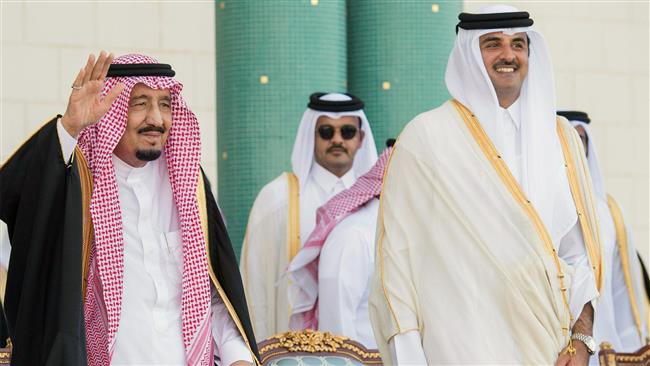Family of Saudi Wahhabism founder disowns Qatar emir amid tensions


Descendants of the founder of Saudi Arabia’s Wahhabi ideology have disowned Qatar’s ruling family amid heightened tension between the two Persian Gulf neighbors.
According to Saudi Arabia’s Okaz newspaper, 200 descendants of Ibn Abd al-Wahhab have denied in a statement claims that the 18th-century cleric was the Qatari emir’s great grandfather.
The statement has not mentioned the Qatari emir by name but has referred to his construction of a mosque named after Ibn Abd al-Wahhab, demanding that Qatar rename the mosque.
Qatar’s state mosque, opened in 2011, is known as the Sheikh Mohammed ibn Abd al-Wahhab mosque.
“We, therefore, demand that the name of the mosque be changed for it does not carry its true Salafi path,” the statement added.
Wahhabism is the radical ideology dominating Saudi Arabia, freely preached by government-backed clerics there, and inspiring terrorists worldwide. Daesh and other Takfiri terror groups use the ideology to declare people of other faiths as “infidels” and then kill them.
The development comes in the wake of escalating tensions between Riyadh and Doha since Qatar’s state-run news agency released comments attributed to Emir Sheikh Tamim bin Hamad Al Thani on sensitive issues last week.
The Qatari emir was quoted as describing Iran as an “Islamic power” and “big power in the stabilization of the region.”
He was also cited as questioning US President Donald Trump’s hostility towards Tehran, speaking of “tensions” between Doha and Washington, praising Hamas resistance movement as “the legitimate representative of the Palestinian people,” and threatening to withdraw ambassadors from a range of Middle Eastern countries.
The Qatari government communications office was quick to claim that hackers had broken into the QNA website and published the fake news. However, the Qatari state television’s nightly newscast had showed clips of the monarch at an official military ceremony with a scrolling ticker at the bottom of the screen showing the same remarks.

Afterwards, Saudi Arabia and the United Arab Emirates blocked access to the Qatari media, including Al Jazeera, and Egypt accused the international news channel of “inciting terrorism” and “fabricating news.”
Qatari Foreign Minister Mohammed bin Abdulrahman Al Thani then said his country was being targeted in a “hostile media campaign.”
Qatar’s ties with its Arab neighbors suffered a breakdown in 2014 over its support for Egypt’s Muslim Brotherhood.
Back in 2014, Saudi Arabia, Bahrain and the UAE withdrew their ambassadors from Qatar in protest at what they called Doha’s “interference in their internal affairs.”




